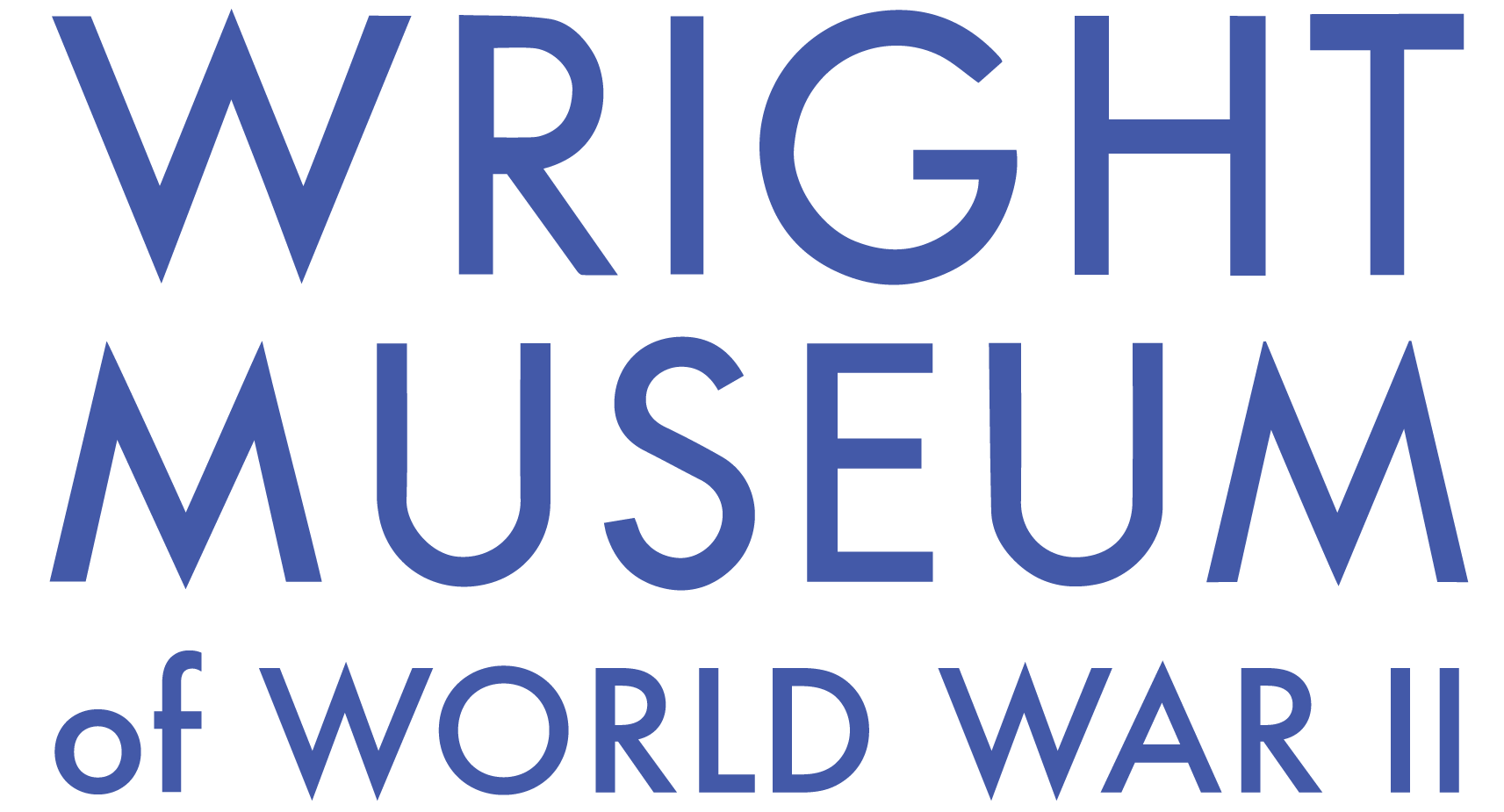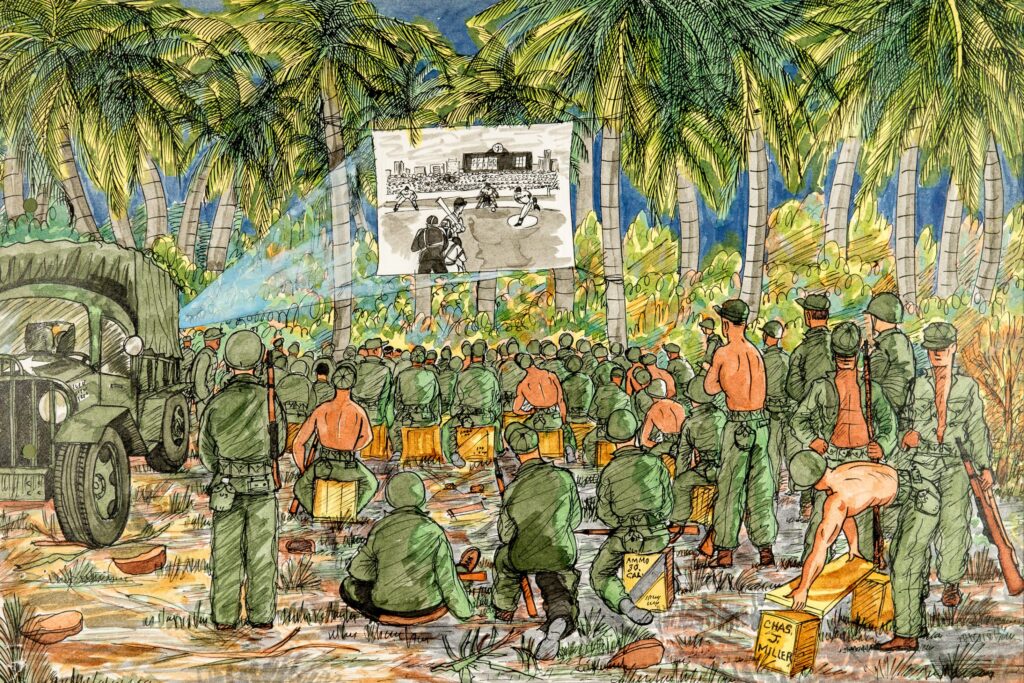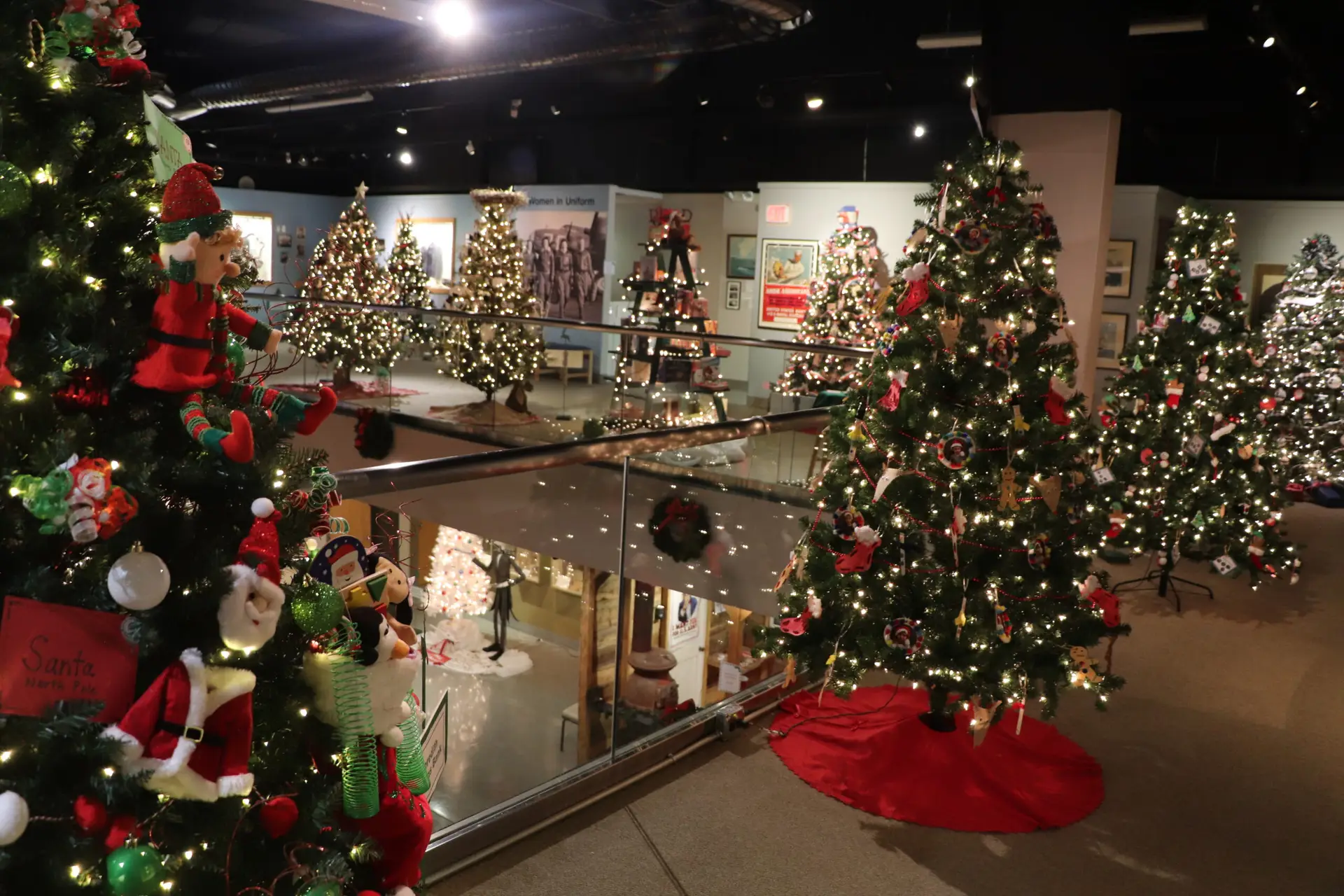With the 2020 baseball season finally underway, here’s a special look at some of the baseball related items in our collection!
In the 1940’s baseball was the most popular sport in America. Logically, this meant it would play an important role in the war. Many great baseball stars joined the war effort, serving in the military; names like Stan Musial, Joe DiMaggio, and Ted Williams.
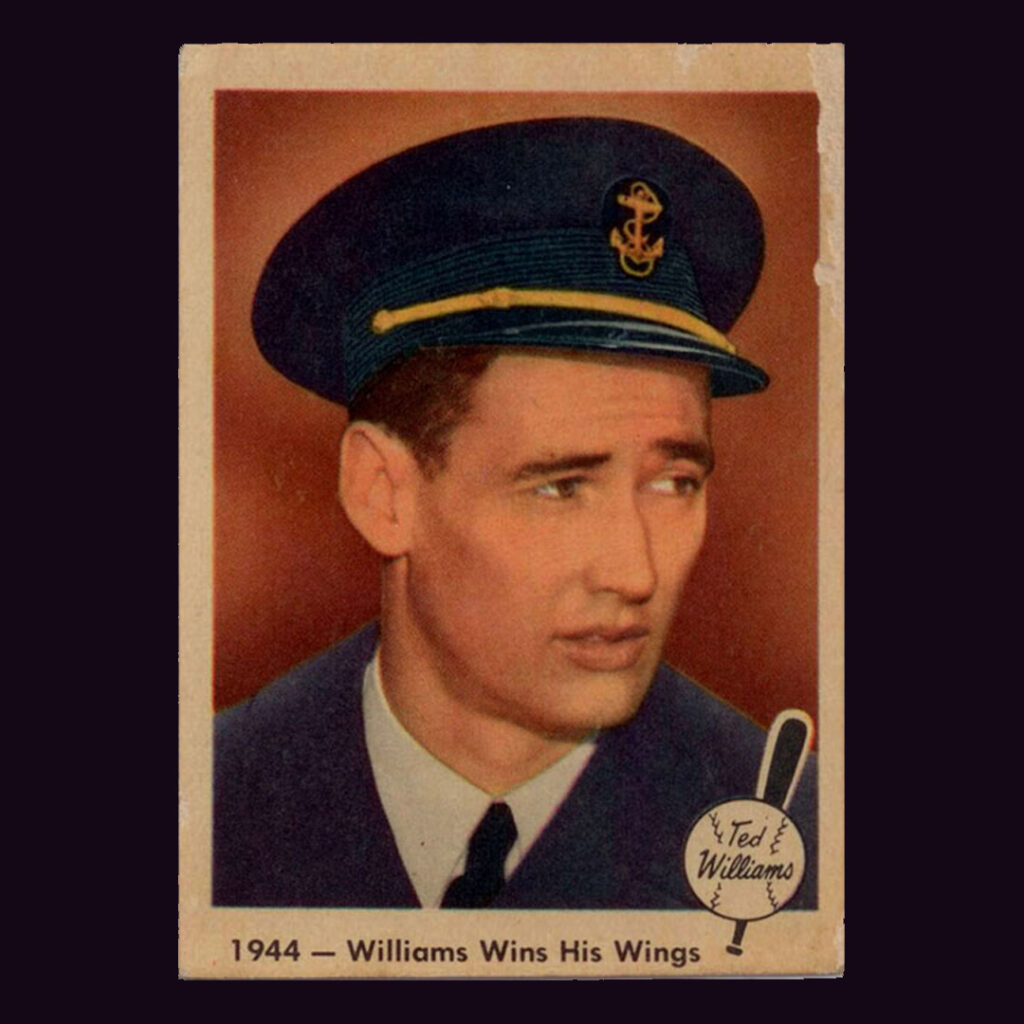
On the home front, baseball was deemed critical for keeping American morale up. Instead of cancelling the 1942 MLB season, President Franklin Roosevelt encouraged the league to keep operations running, even if many of its stars were away in the service. The All-American Girls Professional Baseball League (immortalized by the film “A League of Their Own” also drew fans from around the country starting in 1943.
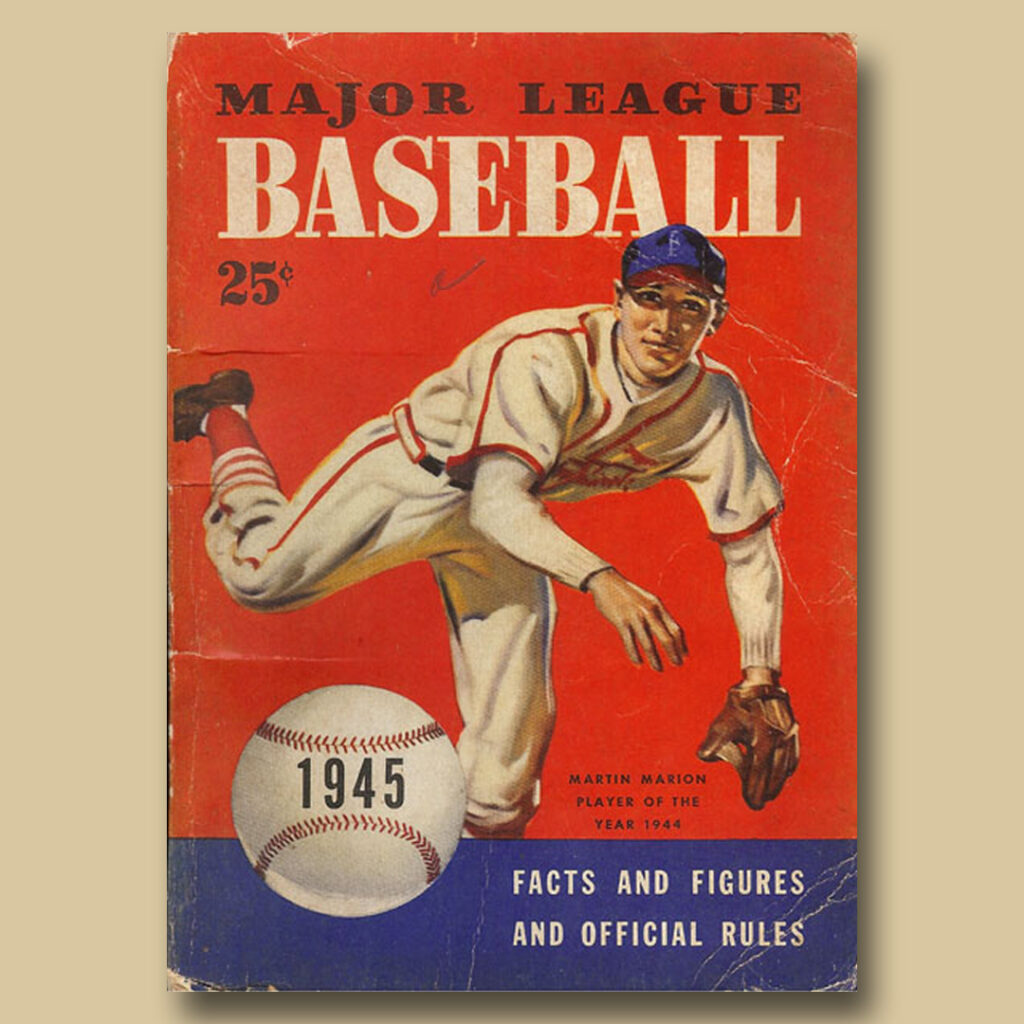
Overseas, troops played pick up games in their downtime. Films of the World Series were sent to the fronts for entertainment. American POWs in Germany received Red Cross shipments that included baseball equipment, allowing them to form teams and keep up morale and discipline.
As the war ended, thousands of American troops remained in Europe and Japan as occupying forces. In Germany, the Nazi rally grounds in Nuremburg were repurposed as a baseball stadium – swastikas were painted over, the American flag was flown, and peanuts and Coca-Cola were brought in for concessions. The so-called “German World Series” was also groundbreaking for being integrated, two years prior to Jackie Robinson breaking MLB’s color barrier in 1947 and three years before the end of official segregation in the US Military. The tournament featured Negro Leagues stars William “Home Run” Brown and Leon Day on the winning Overseas Invasion Service Expedition (OISE) All-Stars.
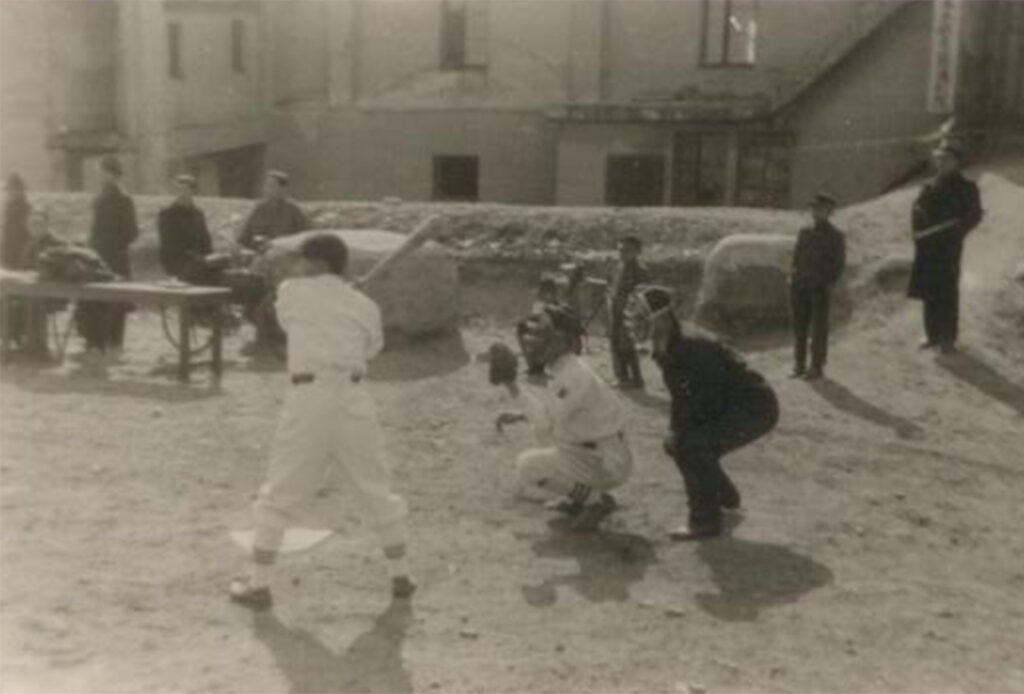
In Japan, baseball was used to aid in the process of restarting diplomatic relations. General MacArthur, recognizing the cultural importance of the sport in both countries, organized a tour of the minor league San Francisco Seals in 1949. The tour drew hundreds of thousands of fans over 10 games, with the Seals being the first American team to tour in Japan since 1934. MacArthur later called the tour the greatest example of diplomacy he had seen.
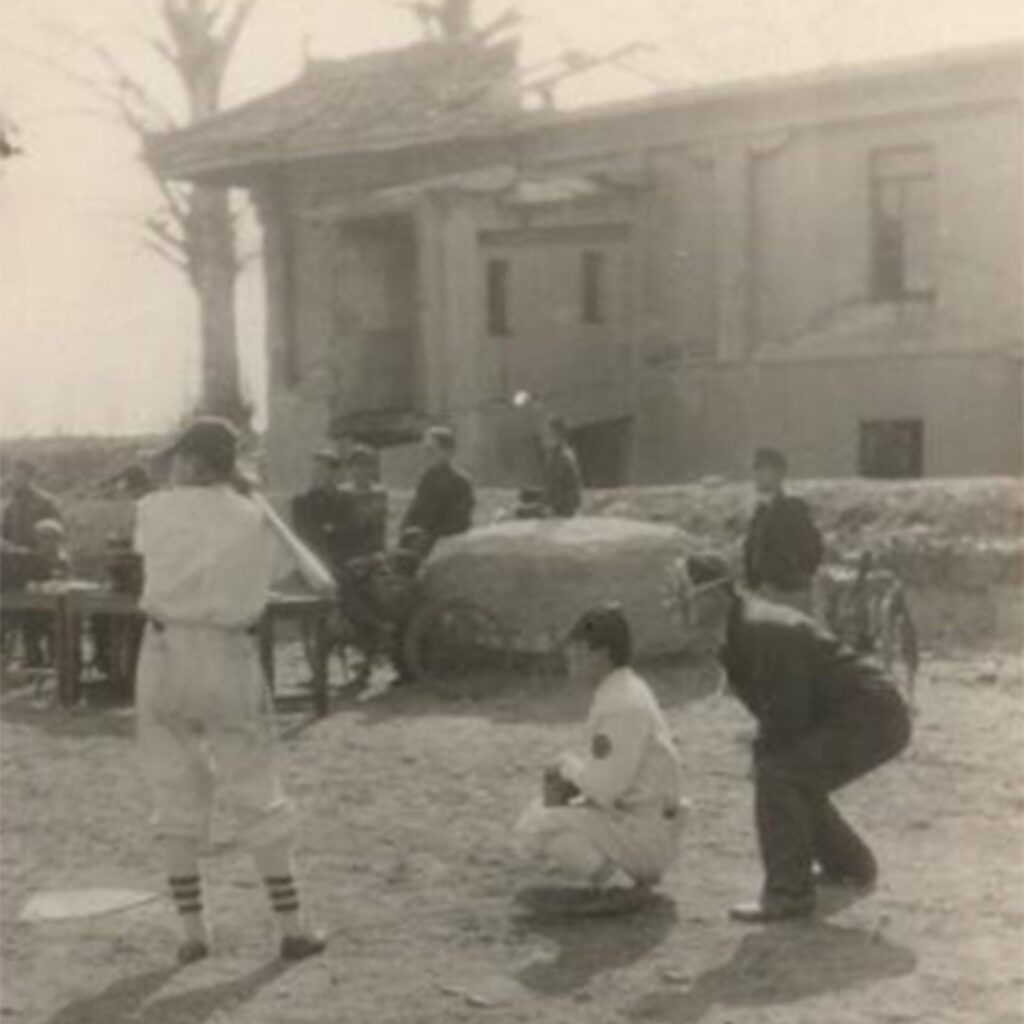
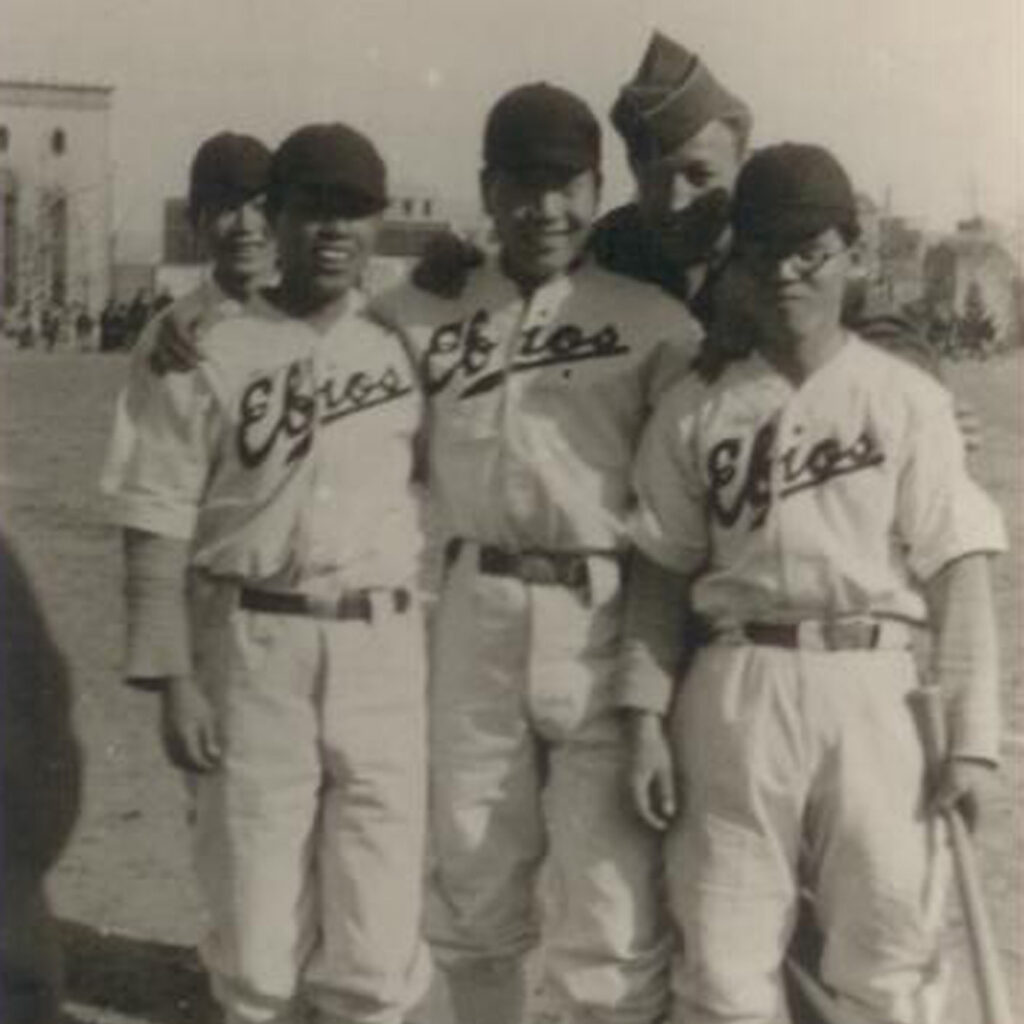
All of the above items are part of the Wright Museum’s collection and illustrate the importance of baseball in the WWII-era. America’s pastime helped keep up morale both at home and abroad, and was just one of many pieces of the united war effort that brought the Allies to victory.
